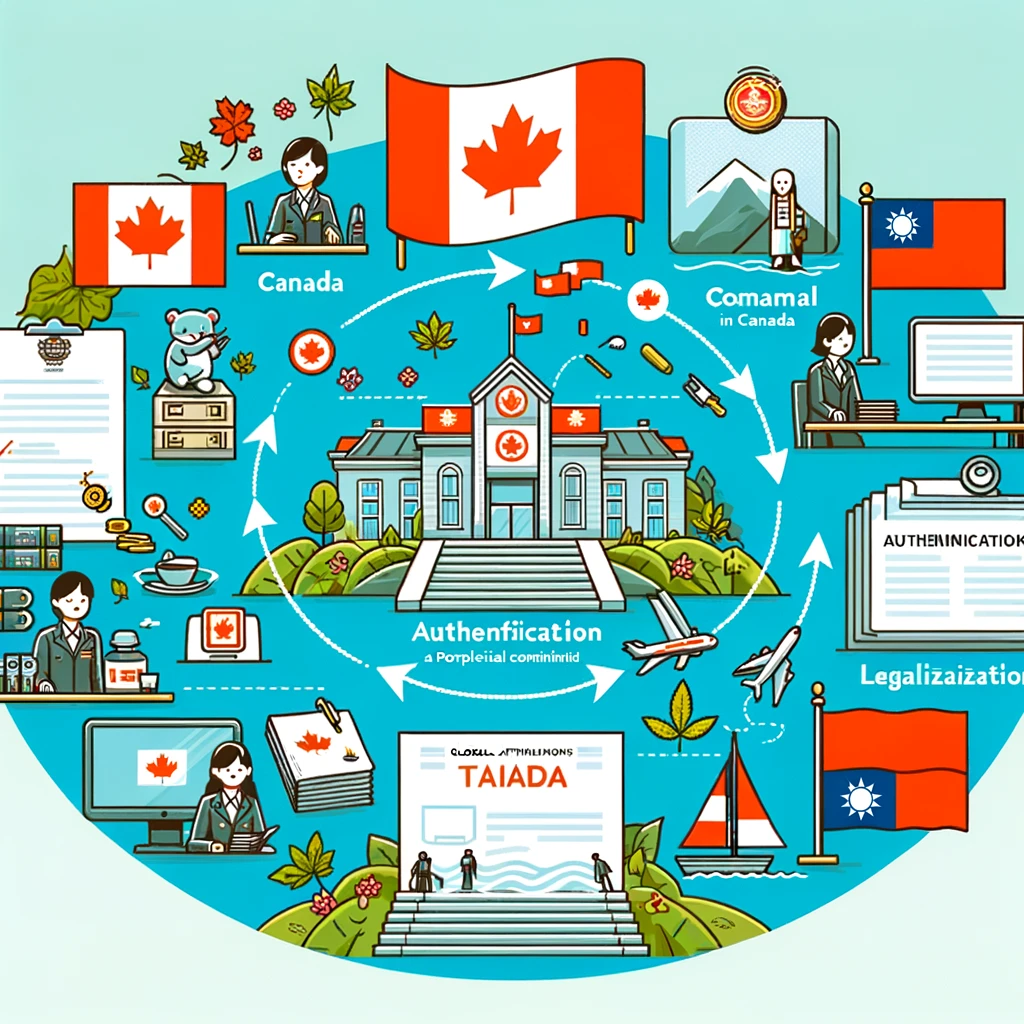Authentication and Legalization of Canadian Documents for Taiwan
In the globalized world of today, the need to authenticate and legalize documents for international use has become a common requirement for both individuals and businesses. Whether it's for studying abroad, conducting international business, or even marrying in a foreign country, ensuring that your documents are recognized across borders is essential. This article delves into the process of authenticating and legalizing Canadian commercial or personal documents for use in Taiwan, a critical step given the recent changes in Canada's international document validation framework.
Canada Joins the Hague Apostille Convention
As of January 2024, Canada has become a member of the Hague Apostille Convention, a significant milestone that simplifies the process of using Canadian documents abroad. The Hague Apostille Convention, established to abolish the requirement of legalization for foreign public documents, has over 124 member countries. For these countries, a simplified apostille process replaces the traditional, more cumbersome method of document authentication and legalization. However, it's crucial to note that this streamlined process does not apply to all countries worldwide.
The Special Case of Taiwan
Taiwan, not being a member of the Hague Apostille Convention, requires a traditional two-step process for Canadian documents to be legally recognized. This process involves authentication and legalization, ensuring that documents issued in Canada are valid for use in Taiwan. Here's a detailed look at each step:
Step 1: Authentication at Global Affairs Canada or Provincial Competent Authority
The first step in the process is getting your Canadian document authenticated. This can be done at Global Affairs Canada or a provincial competent authority designated for document authentication. Authentication verifies the signature, the position of the official signing the document, and, where applicable, the seal on the document. It's important to note that the document must be original and meet the specific requirements set by the authority handling the authentication.
Step 2: Legalization at Taipei Economic and Cultural Office in Canada (TECO)
Once a document has been authenticated, the next step is legalization at one of the Taipei Economic and Cultural Offices in Canada. Legalization is the process by which the Taiwanese representative reviews the authenticated document to verify that it meets all the necessary requirements to be considered valid in Taiwan. This step ensures that the document's authentication is recognized by Taiwan's legal system, making it usable within the country.
Preparing Your Documents
Before initiating the authentication and legalization process, it's crucial to ensure that your documents are in order, which includes checking if they need to be translated and if the translations also need to be authenticated. Depending on the document type, there might be additional requirements or specific forms to be completed. Consulting with TECO or a professional service specializing in document authentication and legalization can provide guidance and streamline the process.
Conclusion Trust The Experts @ Global Document Solutions
Navigating the complexities of international document authentication and legalization can be daunting, especially with the nuances involved in using Canadian documents in Taiwan. The key to a smooth process is understanding the specific requirements and ensuring that all steps are followed correctly. Despite Canada's accession to the Hague Apostille Convention, the need for traditional authentication and legalization for use in Taiwan remains, underscoring the importance of being well-prepared and informed.
As international relations and conventions evolve, staying updated on the latest requirements and procedures is crucial for individuals and businesses alike. By meticulously preparing your documents and following the required steps for authentication and legalization, you can ensure that your Canadian documents will be legally recognized and valid for use in Taiwan, facilitating your personal or commercial endeavors in the country.


